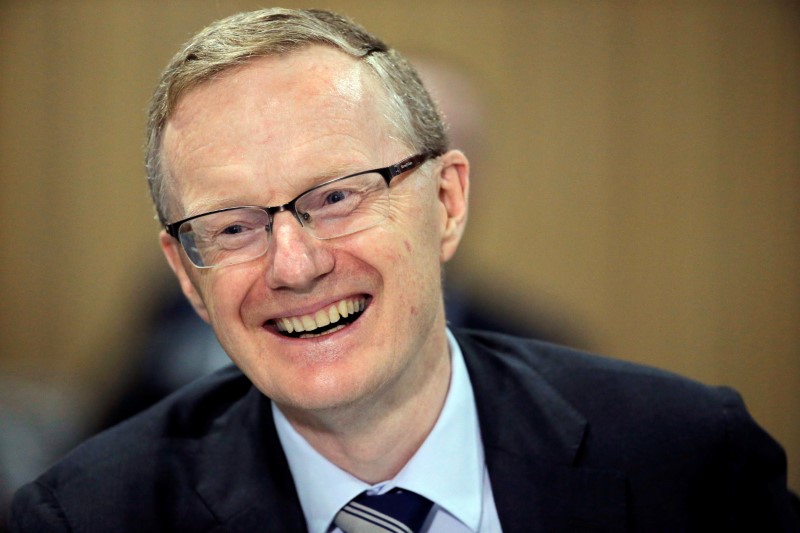By Swati Pandey
SYDNEY, March 7 (Reuters) - The head of Australia's centralbank said on Wednesday the country's economy is expected to grow"stronger" in 2018 than in the past year, in a speech hoursbefore official data that is likely to show growth deceleratedlast quarter.
With the economy "moving in the right direction and interestrates still quite low, it is likely that the next move ininterest rates in Australia will be up, not down," Reserve Bankof Australia (RBA) Governor Philip Lowe said.
The RBA held rates at a record low 1.50 percent for a 17thstraight meeting on Tuesday as inflation still remains below its2-3 percent target band and the jobless rate remains highdespite a recent jobs boom. RBA sees only gradual progress in reducing unemploymentand inflation. As a result, "the Board does not see a strongcase for a near-term adjustment of monetary policy," Lowe saidin Sydney.
A Reuters poll of analysts last week showed economistsexpect gross domestic product (GDP) to have expanded by 0.6percent on quarter and 2.5 percent on year in the Decemberquarter.
However, recent soft indicators have prompted analysts totrim these expectations to rises of around 0.5 percent and 2.4percent, respectively. optimism on growth comes from the strength in theglobal economy and still very loose monetary policies.Particularly helping Australia is the steady increase inpopulation which has climbed 16 percent since 2008.
"This growth, combined with low levels of investment, hasstarted to put pressure on capacity utilisation," Lowe said. "Itis also relevant that businesses are reporting stronger businessconditions than at any time since before the financial crisis."
Lowe said there were significant shifts in businessinvestments as more companies invest in intellectual propertyand information technology as opposed to plant, machinery andequipment.
As a result, the share of non-mining investment in theeconomy will be lower than it was in the past by 1-2 percentagepoints, Lowe said.
Meanwhile, the amount of investment in the resources sector,as a share of the country's A$1.7 trillion economy, will behigher than it was before the decade-long mining investmentboom.
"We are already seeing some evidence of this, with increasedspending on 'sustaining' the capital stock being one of thefactors behind the recent improvement in the Western Australianeconomy," Lowe said.
